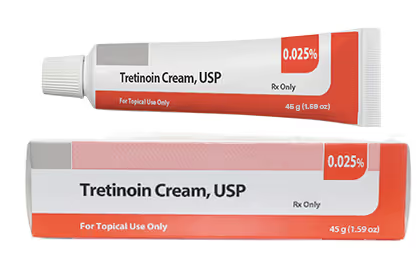You just got a bad case of skin problems and your doctor is recommending spironolactone. You went online to do your research, and found something interesting.
This is especially true when you search for the side effects. You may end up asking this question: Does spironolactone cause weight gain? Let’s dive into this query, exploring the realms of science, anecdotal evidence, and expert opinions to uncover the truth.
Exploring the Effects of Spironolactone on Weight Gain
Scientific Evidence vs. Anecdotal Claims
When you’re prescribed spironolactone, you might hear varying accounts regarding its impact on your weight. While some individuals report weight gain as a side effect, scientific studies often paint a different picture. It’s crucial to distinguish between what the scientific community has to say and personal stories that, although valid, may not reflect the broader effects of the medication.
To navigate these conflicting narratives, consider the following:
- The importance of evidence-based guidelines, such as those developed by the Wilderness Medical Society.
- Recognizing that side effects like weight gain and breast enlargement are documented but may not occur universally.
- Understanding that individual responses to spironolactone can vary widely due to unique health conditions and lifestyle factors.
Remember, the journey to managing your health with spironolactone requires regular monitoring and patience to see how your body responds over time.
At Honeydew, our online dermatology providers can help manage unwanted side effects of medications like spironolactone. Plus, if you start seeing results but are not satisfied with side effects, our dermatologists are experienced with prescribing medications like low-dose Accutane, which has a low side effect profile and is the most effective treatment for acne.
Role of Spironolactone as a Diuretic
When you take spironolactone, you’re employing a medication that’s a potassium-sparing diuretic, which means it helps your body rid itself of excess water without depleting potassium. This unique feature has made spironolactone a go-to for conditions that benefit from reduced fluid levels.
However, no medication is without side effects. While spironolactone can cause dizziness, nausea, and headaches, its diuretic nature typically leads to a reduction in water weight. Despite this, you might come across stories online of people experiencing weight gain while on the medication. This raises questions about the relationship between spironolactone and weight changes.
Here’s what you need to consider about spironolactone as a diuretic:
- It’s designed to tackle conditions like high blood pressure and heart failure.
- It blocks aldosterone, which can cause blood pressure to rise and lead to water retention.
- Scientific evidence generally associates spironolactone with weight loss, not gain, due to its diuretic effect.
Factors Influencing Weight Fluctuations
While spironolactone is not the villain in the weight gain saga, it’s essential to recognize the factors that can cause your weight to fluctuate. These include:
- Diet, particularly your intake of sodium and potassium, which can affect your body’s fluid balance.
- Hormonal levels, which can impact water retention and metabolism.
- Your body’s adaptation to spironolactone, as it adjusts to changes in water and salt balances.
Understanding these factors is crucial because weight gain from fat accumulation is a slow process, while water weight can fluctuate rapidly. It’s important to differentiate between actual weight gain and the feeling of increased weight due to water retention. If you’re concerned about your weight while on spironolactone, consider these aspects and discuss them with your healthcare provider to ensure you’re managing your health effectively.

Understanding the Complexity of Medication Reactions
Individual Health Conditions
When considering the effects of spironolactone on your body, it’s crucial to acknowledge that your individual health conditions play a significant role. Not everyone will experience the same reactions to this medication, as adverse reactions can range from mild to serious, depending on your unique health profile.
- If you have a history of heart disease, your body’s response to spironolactone might differ from someone with a digestive health issue.
- Those managing conditions like type 2 diabetes or multiple sclerosis may notice different weight fluctuations when on spironolactone.
It’s important to discuss your specific health conditions with your healthcare provider to understand how spironolactone might affect you. They can offer personalized advice and monitor any changes in your weight or overall health.
Lifestyle Factors
Your daily habits and routines play a crucial role in how your body responds to medications like spironolactone. Understanding the interplay between your lifestyle and medication effects is essential for managing your overall health and well-being. Here are some factors to consider:
- Diet: What you eat can affect fluid retention and weight. A balanced diet with appropriate sodium intake is important when taking diuretics.
- Exercise: Regular physical activity can help mitigate potential weight gain by increasing calorie expenditure.
- Stress: High stress levels can lead to hormonal changes that might influence weight.
It’s also worth noting that lifestyle interventions have been shown to significantly reduce body weight and improve health outcomes in certain conditions, such as heart failure with preserved ejection fraction (HFpEF). While spironolactone is not directly linked to weight gain, the combination of medication and lifestyle can lead to changes in your body weight. Therefore, it’s important to maintain a healthy lifestyle and consult with healthcare professionals to tailor your diet and exercise plans alongside your treatment.
Interactions with Other Medications
When taking spironolactone, it’s crucial to consider the potential for drug interactions. These interactions can alter the effectiveness of your medications or increase the risk of adverse effects. Always consult with your healthcare provider before combining spironolactone with other prescriptions, particularly if they are within the same class or address similar conditions.
- Be wary of over-the-counter medicines, such as those for colds or allergies, as they may affect blood pressure and counteract spironolactone’s benefits.
- Pay attention to medications for conditions like primary aldosteronism, especially when used in combination with spironolactone.
- Remember that some side effects may not require medical attention and could diminish as your body adapts to the medication. However, always report persistent or bothersome side effects to your healthcare professional.
Navigating the Impact of Spironolactone on Body Fluid Balance
Adjusting Diet and Water Intake
When taking spironolactone, it’s crucial to monitor your diet and water intake to manage your body’s fluid balance effectively. Here are some steps you can take:
- Hydration is Key: Despite spironolactone being a diuretic, maintaining adequate hydration is essential. Drinking enough water ensures your body can regulate fluid levels properly, helping to alleviate water retention.
- Mind Your Minerals: Keep a close eye on your intake of sodium and potassium. Spironolactone affects potassium levels, so it’s important to balance these minerals. Avoid foods high in potassium, such as avocados and bananas, to prevent potential complications.
- Consult Your Conductor: Your healthcare provider is your best resource for personalized advice. They can adjust your treatment plan if you’re experiencing weight fluctuations due to water retention.
Remember, each person’s body reacts differently to medication, and what works for one individual may not work for another. Regular check-ins with your healthcare provider can help you navigate these changes successfully.
Managing Bloating and Water Retention
When taking spironolactone, it’s essential to distinguish between actual weight gain and the sensation of increased weight due to bloating and water retention. While spironolactone can lead to conditions that mimic weight gain, such as bloating, understanding how to manage these symptoms can make a significant difference.
To effectively manage bloating and water retention, consider the following steps:
- Mind Your Minerals: Keep a close eye on your sodium and potassium intake. Balancing these minerals is crucial since spironolactone affects potassium levels, which can influence water retention.
- Stay Active: Engage in regular exercise to help your body maintain a healthy fluid balance and prevent the buildup of excess fluid.
- Hydration is Key: Drinking ample water may seem counterintuitive, but it is vital for maintaining a healthy fluid balance and can actually help alleviate water retention.
If you’re experiencing persistent issues with bloating or water retention, it’s important to consult your healthcare provider. They can offer personalized advice and make necessary adjustments to your treatment plan, ensuring that your health remains in harmony.
Effects on Weight and Health Profiles
When considering the impact of spironolactone on your weight and overall health, it’s important to recognize that the medication’s influence extends beyond simple fluid balance. The perception of weight gain may be more related to changes in water and salt balances than an actual increase in fat mass. This distinction is crucial for understanding the medication’s effects on your body.
- Spironolactone’s antiandrogenic properties can lead to effects associated with low androgen levels, particularly in males, which may influence overall health profiles.
- Lifestyle interventions, including diet and exercise, have been shown to significantly reduce body weight and improve health-related quality of life in patients with certain health conditions.
Ultimately, the interplay between spironolactone, individual health conditions, and lifestyle choices can result in a complex array of reactions. It’s essential to work closely with your healthcare provider to monitor these effects and adjust your treatment plan as necessary to maintain both your health and quality of life.
Understanding the effects of Spironolactone on body fluid balance is crucial for those managing conditions like hypertension or heart failure. At Honeydew, we provide expert care and support to help you navigate your treatment with ease. Our membership includes all clinician consultations, prescription management, and ongoing support from your dedicated care team.
Don’t let the complexities of medication management overwhelm you. Visit our website to schedule your free consultation and learn more about our services. Take control of your health journey with Honeydew today!
Key Takeaways
- Scientific evidence suggests that spironolactone does not directly cause weight gain.
- Spironolactone, as a diuretic, is more commonly associated with weight loss, particularly in the form of water weight.
- Factors such as individual health conditions, lifestyle choices, and interactions with other medications can influence weight fluctuations on spironolactone.
- Adjusting diet and water intake can help manage bloating and water retention while on spironolactone.
- The relationship between spironolactone and weight gain is complex, influenced by medication, body fluid balance, and individual health profiles.
Conclusion
The relationship between spironolactone and weight gain is a complex one that requires a nuanced understanding. While scientific evidence suggests that spironolactone does not directly cause weight gain, it can lead to conditions such as bloating and water retention, which may be perceived as weight gain.
Individual health conditions, lifestyle factors, and medication interactions play a role in how the body responds to spironolactone. Ultimately, the evidence points towards a multifaceted interaction between the medication, body fluid balance, and individual health profiles rather than a direct cause and effect relationship with weight gain.
At Honeydew, our online dermatology providers help patients manage their acne treatment plans to minimize side effects and maximize results. If you're considering spironolactone or are looking for alternative treatments -- like low dose Accutane -- that can help you build on your skin progress, try Honeydew today.























